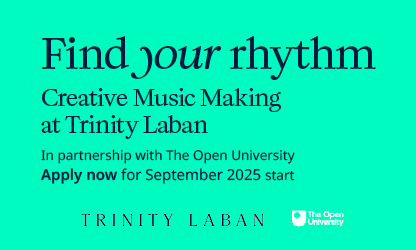PRS consultation on the Live Classical (LC) tariff – deadline now 31 December
First opened on 1 August, the consultation has now been extended twice and will finally close on 31 December – so there’s still time if you want to make a submission.
What is it all about?
When you perform or present music in copyright in public, royalties are due to the creator(s) of that musical work. PRS for Music collect this money on behalf of creators who are their members and then distribute it to them. Sometimes they use ‘agents’ to do this for them, and Making Music is one such, so groups who perform in unlicensed venues can pay PRS through us.
But it is more usual to be paying PRS as a percentage of box office takings directly via a venue licensed by PRS. 4.8% is the current rate for venues which have opted for the blanket rate – that means whether only one piece or 12 in your concert are in copyright, 4.8% of your whole box office income will be charged. Venues can opt for a variable rate (which is much higher), but generally don’t as it’s more admin for them.
When paying via Making Music, rates (based on the Live Classical or 'LC' tariff) are according to size of audience and have been updated every year, whereas the LC tariff as a whole has not been reviewed since 2003. If your average ticket is £5 or lower, you also pay a blanket rate based on audience size, but most members charge more (where they charge), our latest figures (2016) telling us the average ticket price is around £12.
Some members are really concerned that this will tip them over the edge, in terms of their finances and the complexity of running a group, and that they might just throw in the towel and close
What are PRS suggesting now?
- They want to continue with the LC tariff, which was only separated from the Live Popular (LP) tariff in 2003 – before there was only one tariff
- The LC tariff is higher than the LP, and they want to raise it further now, over three years, from 4.8% to 7.2%. As 80% of our members are too small to be VAT registered, that means in effect a raise from 5.76% to 8.76%, which is an increase of 52%
- They also want to extend the income base on which this percentage is calculated, to include programme income, complimentary tickets, ‘ancillary sales’, and ticket fees
- They are also asking about potentially creating a new tariff for film and television music
- PRS are all about getting the best deal for their members and for music creators and they believe these proposals will deliver that
What does this mean for Making Music members and leisure-time music groups?
- It means a significant increase in the costs of staging a concert, if you promote your own events
- It means a significant increase in the complexity of reporting income for the purpose of PRS calculation
- Making Music believes that PRS did not fully consider the economic and management model of volunteer-run self-funded leisure-time music groups when developing its proposals and that they are therefore not a good fit for our members as they stand
If the proposals are implemented, what are the likely consequences?
178 members emailed us with often very detailed information (thank you!), to tell us that this could well be the straw that breaks the camel’s back and that they would in all likelihood:
- Drastically reduce or stop programming music in copyright
- This would also obviously mean a lack of opportunities for composers with works in copyright to have those works played, sung and performed
- It would also mean in future far fewer than the current (2016 data) average 500 new music commissions by Making Music members
- Some members are really concerned that this will tip them over the edge, in terms of their finances and the complexity of running a group, and that they might just throw in the towel and close
What to do now?
- Making Music has responded to the consultation, taking into account the arguments put forward by members in their submissions to us and adding a cross-section of 28 more detailed case studies. If you would like a copy of our submission, please email Barbara Eifler
- Making Music is also still working on a joint submission with other organisations in the classical music industry to make the voice of the leisure-time music sector heard
- Make your own submission – you do not need to fill in all the questions on the form if you don’t have some of that information, so you can use it to comment more generally. Find the consultation documents, questionnaire and link to the online form on the PRS website



